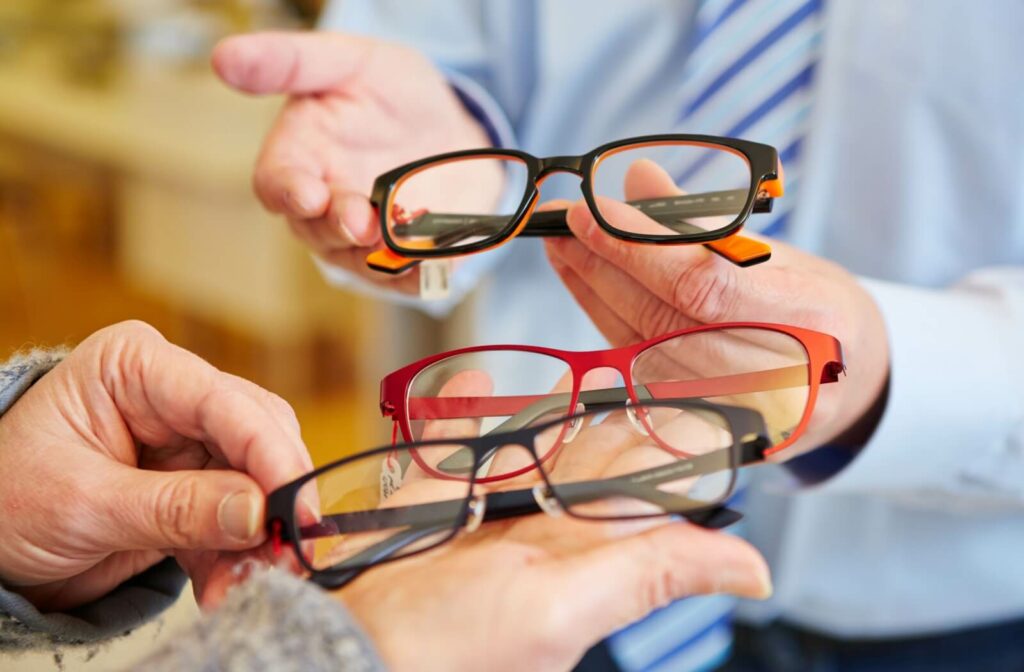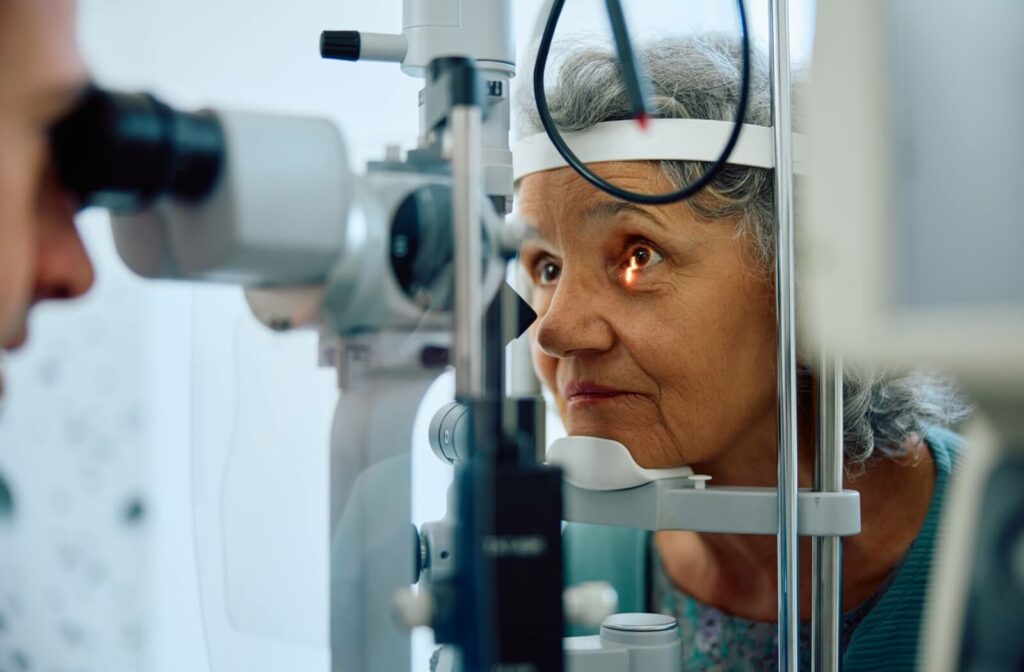OHIP can be a life-changing option for many people. And when it comes to eye care services, it can make all the difference in the world. However, planning ahead is essential when it comes to taking care of your eyes—especially for seniors navigating this system.
OHIP doesn’t cover eyeglasses for seniors. However, it does provide coverage for certain eye care services when specific conditions are involved. If you’re in need of new eyewear, you’ll likely need to pay out-of-pocket or seek private insurance coverage.
The Basics of OHIP Coverage
The Ontario Health Insurance Plan, better known as OHIP, is designed to make healthcare services more accessible for Ontario residents. The aim is simple—to help people access essential medical services without direct costs.
OHIP focuses on covering critical medical needs. It’s a generalized plan tailored to health services that anyone would need. This means it covers routine care that would otherwise cost a significant amount of money.
OHIP covers:
- Doctor visits
- Hospital visits
- Lab testing
- Eligible surgeries
- Ambulance visits
If you’re a senior citizen, OHIP often covers basic medical needs, hospital stays, surgeries, and most diagnostic tests. This program puts healthcare within reach of all Ontario residents—regardless of their income or social status.
What Eye Care Services Does OHIP Cover?
When it comes to eye care services, OHIP becomes a little more complicated. Generally, OHIP doesn’t cover most optometry services—however, it does cover:
- 1 eye exam every 12 months, with any needed follow-up assessments, for children under the age of 19
- 1 eye exam every 18 months, with 2 follow-up assessments, for older adults without preexisting conditions
- 1 eye exam every 12 months, with 2 follow-up assessments, for adults living with preexisting qualifying conditions. These include:
- Diabetes
- Cataracts
- Corneal disease
- Retinal disease
- Uveitis
- Optic pathway damage
- Glaucoma
OHIP also covers any eye exam or eye care services deemed medically necessary. However, general visits and standard eye care services are rarely covered. Eyeglasses aren’t covered by OHIP at any point—instead, you’ll need private insurance if you plan on regularly updating your eyewear.
If you’re ever unsure of whether or not your care will be covered by OHIP, reach out to your optometrist to confirm!
Why Should You Buy Eyeglasses From Your Optometrist?
While OHIP doesn’t cover eyeglasses, you should still visit your optometrist for all of your eye care needs. They’re a trained eye care professional with significant experience, and they can help you find eyewear that meets your unique needs.

Eye Exams
First, your optometrist can perform an eye exam to determine any changes in your prescription. They’ll also look for signs of conditions like cataracts, glaucoma, and any damage to the eye. Seniors should book an eye exam at least once every year—this makes it easier to catch any potential changes in your eyes and address problems before they cause permanent damage.
Professional Guidance
Your optometrist will take the time to find a pair of eyeglasses that suits your requirements. They’ll be able to help you make an informed decision for your future eyewear and answer any questions you have. They’ll even be able to recommend specific styles, frames, materials, and shapes depending on your situation.
Quality Control
Buying glasses from an optometrist means you’re gaining access to professional quality. The lenses and frames should be made of high-quality materials tailored to your specific prescription and needs.
This means your eyewear will be durable and effective. Your optometrist may even offer warranty options, financing, or even replacement services if something were to go wrong!
Comprehensive Aftercare
Your care doesn’t stop after the exam. Optometrists offer ongoing support—including adjustments and repairs for your glasses. They’ll take the time to make sure your new glasses fit comfortably and correct your vision properly.
Signs It’s Time For New Glasses
For most people, eyeglasses should be updated every 1-3 years. For seniors, this timeline may be shorter. Try to watch out for signs your glasses are out-of-date, such as:
- Frequent headaches, which could be caused by outdated prescriptions.
- Blurred or distorted vision that glasses no longer improve.
- Difficulty seeing fine details or reading even while wearing glasses.
- Scratched, chipped, or damaged lenses affecting clarity.
- Frames that cause discomfort or no longer fit properly.
If you’ve been experiencing any of these, it’s worth checking in with your optometrist. They can check your eye health and vision to determine what’s causing your symptoms.
Update Your Eyewear Today
Keeping up with both your eyewear and regular eye exams is the easiest way to stay on top of your vision. Whether your services are covered by OHIP or not, eye care is essential—and our tea at Toronto Centre Eye Care is ready to help. Contact our team today to book your next appointment! We’re here to keep your vision clear.



